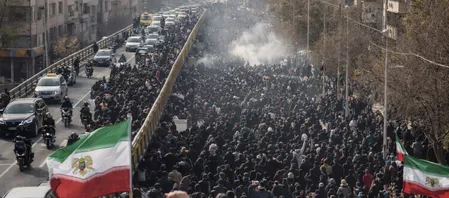
Iran protests: An Iranian believer's perspective

Pooyan Mehrshahi
I was born in Iran in 1980, after the Islamic Revolution, and I did not witness 1979 with my own eyes. But I grew up under the fruit of it. I lived through the Iran–Iraq war years, when the nation was taught to endure shortages, silence questions, and treat dissent as treason.
I came to the United Kingdom because of my father’s academic studies, and later God showed mercy to me, a sinner and saved my soul, and so I settled here as a Christian. I did not arrive as a refugee, but I carry the weight of what that system did to my people, and what it still does.
Christ's words to weary pastors in hard places
The Lord Jesus has told us what to do and where to begin. “And that repentance and remission of sins should be preached in his name among all nations, beginning at Jerusalem” (Luke 24v47).
“But ye shall receive power, after that the Holy Ghost is come upon you, and ye shall be witnesses unto me both in Jerusalem, and in all Judaea, and in Samaria, and unto the uttermost part of the earth” (Acts 1v8).